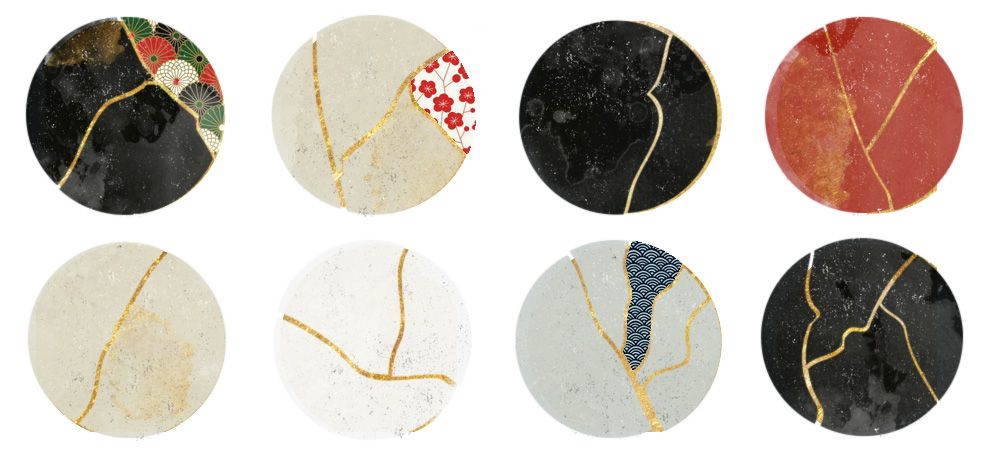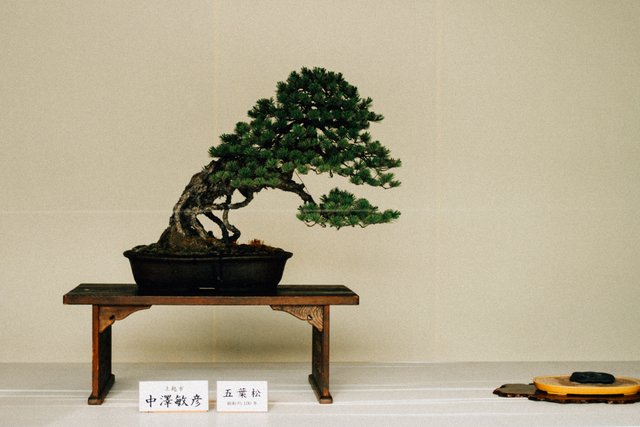Kintsugi : Perfectionism, Mastery, Self-Compassion and Creativity

The Japanese practice of Kintsugi (金継ぎ — golden joinery) embraces the beauty of things by the brokenness of things. When a plate or a vase is damaged, it undergoes a special repair process whereby cracks and fractures are filled in with gold. In effect the repaired object becomes stronger and more beautiful than it originally was because it was broken.
I have always found this to be a simple, beautiful yet profound concept.
Relating to creativity, there is something that makes me happy about the idea that we could be add more richness and authenticity to what we make and do because of our flaws.
When we attempt things, from time to time we might actually succeed. But often we do not, and yet we spend vast amounts of time and energy putting forward an illusion that we haven’t failed, we do not hurt and we have no splinters. Eventually, the years of slights, unexpressed emotions, ups and downs, things that were said or not said, done and not done effectively compel us to create a veneer of invulnerability— in effect a ‘mental dam’ which prevents us from creating in a way that is true and faithful to ourselves and our experiences.

But what if we were able to find peace, self-compassion and the ability to achieve mastery simply by highlighting and filling in our brokenness with gold? What if instead of hiding our damage and pursuing false and unattainable ideals of perfection, we celebrated our flaws for the purposes of creating infinitely more powerful and engaging work?
This leads me to the concept of perfectionism and the concept of mastery.
Perfectionism strives for the eradication of all our perceptible errors, whereas mastery seeks minimisation, understanding, integration and acceptance of those flaws. Perfectionism comes from a place of lack and scarcity. It has an inherent undertone that suggests that a work might not be worthy unless it is completely devoid of imperfections and flaws.
Perfectionism can be alienating, whereas mastery is inclusive. I am firmly of the belief that there is no greater way to show greater respect for your fellow man than to through respect for oneself and the quest for achieving the utmost quality of the craft of your choice. For me, it feel as thought when I put forward something to be consumed by others, done to the best of my ability, it’s my way of essentially saying that ‘I care enough to want to offer you my best through my decision to master the process of its creation’, if that makes any sense. The result invariably being the elevation of oneself, either spiritually, artistically or in many cases, both.
I think something can be masterful and yet wonderfully imperfect at the same time and this is what gives it a charm and timeless quality. This is of course, a purely subjective thought, but I cannot help but feel that it is in the gap created by such imperfections, that we find the sense of wonder and possibility that makes a piece of work feel so human and accessible in the first place.
If I were to try to illustrate that musically, it is not the machine-controlled, perfectly synchronised drum beat that never misses a step that excites me, but that single, masterful, human snare hit that was almost on time but just dragged by a fraction of a second… It is not the perfectly calculated singing pitch that I find myself relating to, but the vocal take which is off by just a fraction, yet full to the brim of genuine emotion. I couldn’t connect to songs about situations that might have never been experienced by the writer who made them just to sound legit, only to the song that is about something tangible, that I can be related to and above all, felt.
It is the work that we create when we find ourselves split in so many directions and at our most vulnerable, but willing to stand up again and repair ourselves with gold; stronger, wiser but still unashamedly raw and authentic. In such moments, it become much more likely that something timeless, that is capable of fostering a connection between our creative inner worlds and our audience can be brought into existence.
The willingness to show compassion for ourselves and our perceived failings in the face of how we might be received by others can give us the strength to master our respective crafts, master ourselves and both our inner and outer worlds. We are then free to transcend the perceptions of ourselves, even if only just for a little while, to see beauty in what once was broken turned now into gold, in ourselves and in others.
What are your thoughts about this? Let's start a conversation!
All images and text by Kwame Bruce Busia (@kaertrolled)
www.kwamebrucebusia.com
nice..
thanks for sharing..
Thank you for reading!
Congratulations @kaertrolled! You have completed some achievement on Steemit and have been rewarded with new badge(s) :
Click on any badge to view your own Board of Honor on SteemitBoard.
For more information about SteemitBoard, click here
If you no longer want to receive notifications, reply to this comment with the word
STOP